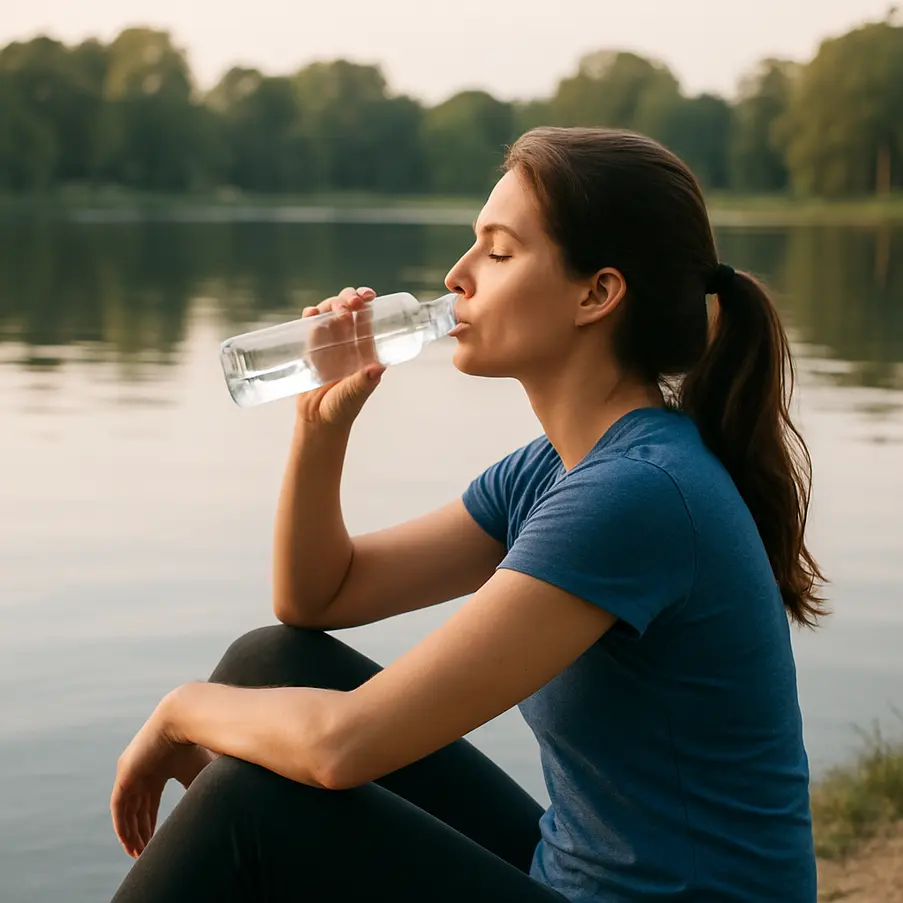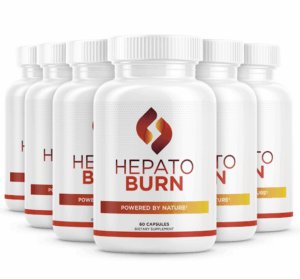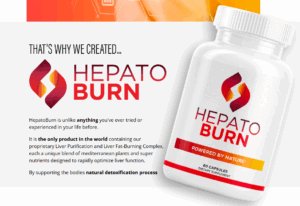Water intake is crucial for maintaining overall wellness, influencing various aspects of health, including digestion, brain function, and energy levels. Understanding how to properly hydrate can significantly enhance your well-being and complement your dietary goals. This article delves into the science of hydration and offers practical recommendations to align your water consumption with daily wellness needs.
The Science Behind Water Intake: Why It Matters
Water plays an essential role in maintaining our health by participating in numerous bodily functions. It serves as a medium for transporting essential nutrients to cells, ensuring our body functions optimally. Without adequate hydration, nutrients cannot efficiently reach the cells, hampering energy levels and overall wellness.
The process of waste elimination is another critical area where water shows its importance. It facilitates the flushing out of toxins and waste products through processes like urination and sweating. When hydration is subpar, these waste products accumulate, potentially leading to a variety of health problems.
Equally significant is water’s role in regulating body temperature. During physical activities or in warm climates, our bodies sweat to cool down, losing water in the process. Insufficient water intake can disrupt this delicate balance, resulting in challenges like heat stress, which can be detrimental to physical performance.
One might overlook how hydration impacts mental function, but water is vital for brain health. Dehydration can cause cognitive impairments, decreasing concentration, alertness, and short-term memory levels. Studies demonstrate that even mild dehydration – as little as a 1-2% fluid loss – can impair these cognitive functions.
On the flip side, optimal hydration has been linked with increased energy levels, improved mood, and enhanced cognitive performance. For those striving to optimize their diet and wellness, understanding these intricate roles of water provides insight into how to structure their daily routine effectively.
For more personalized dietary strategies, consider exploring our essential vitamins and minerals for wellness, which align with the necessity of maintaining adequate hydration.
Inadequate hydration can also have tangible physical consequences. Muscle cramps, fatigue, and poor exercise performance are common issues arising from dehydration. Those who engage in rigorous physical activities or high-intensity interval training might experience these effects more acutely, emphasizing the need for a consistent water intake.
In conclusion, recognizing water’s multifaceted role offers a comprehensive view of how to nourish the body effectively. By integrating proper hydration into daily wellness strategies, one can ensure a balanced and energized lifestyle, synergistic with a healthy and optimized diet.
Daily Water Intake Recommendations for Optimal Health
Hydration is not one-size-fits-all; your water needs are as unique as you are. Understanding how to tailor water intake is crucial for maintaining optimal health and wellness. Let’s dive into how different factors can influence your hydration strategy.
Firstly, consider age. Children require less water than adults, but their hydration is equally vital. For adults, recommendations suggest aiming for about 2.7 liters for women and 3.7 liters for men each day, including water from all beverages and foods. As we age, the sense of thirst can diminish, making regular hydration even more crucial for seniors.
Activity level significantly impacts hydration needs. Those who engage in intense physical activities may need to increase their water consumption to compensate for what is lost through sweat. An excellent rule of thumb is to drink an additional 1.5 to 2.5 cups of water for every hour of intense physical activity.
Climate conditions also play a significant role. Hot and humid environments require increased hydration to replace fluids lost through perspiration. Similarly, in cold climates, although we may not feel as thirsty, our bodies still lose moisture through dry air and increased respiratory water loss. Therefore, keeping track of these factors can help you maintain proper hydration.
Customizing your hydration strategy involves understanding your body’s signals and needs. A simple way to check your hydration status is by observing the color of your urine. Pale yellow indicates proper hydration, while darker shades suggest it’s time to drink more water.
Incorporating tools such as fitness trackers can monitor your daily activity and remind you to drink at regular intervals. Coupling them with smart water bottles can provide further insights into your hydration patterns, helping create a personalized plan. To explore how integrating technology with wellness can enhance your routine, consider checking out our best fitness trackers for beginners.
Lastly, remember that food can contribute to your daily water intake. Fruits and vegetables high in water content, like cucumbers and strawberries, can provide both nutrition and hydration. By focusing on a holistic approach to water intake, you can support not only your body’s hydration needs but also optimize your overall wellness.
Incorporating Water Intake into Your Diet Plan
Incorporating optimal water consumption into your diet plan can be both simple and beneficial. To start, consider setting reminders that trigger throughout your day to prompt hydration. This can be easily achieved with apps designed to track your water intake, ensuring you never miss a sip. Many of these apps allow you to set personalized goals based on your weight, activity level, and climate.
Integrating hydration with meals is another effective strategy. A glass of water before each meal not only helps with digestion but also promotes a feeling of fullness, potentially reducing the likelihood of overeating. Additionally, pairing your water with snacks or meals ensures that hydration becomes an unmissable part of your nutrition routine.
Remembering to hydrate might seem daunting, but clever tips can make it easier. Placing water bottles in frequently visited spots like your workspace, kitchen, or next to your bed serves as a constant reminder to drink. You might also link hydration with specific activities, such as taking a few sips after every set during a workout or when transitioning between tasks.
Foods with high water content are excellent complements to your hydration goals, providing both nutrition and fluid. Fruits like watermelon, strawberries, and oranges boast over 85% water content. Vegetables such as cucumbers, lettuce, and zucchinis are also excellent choices. These foods not only contribute to your water intake but are also rich in vitamins and minerals crucial for wellness.
For those keen on optimizing their hydration as part of a broader fitness journey, explore our comparison of popular diet plans to see how different diets can align with your hydration strategy.
Adopting these techniques can weave hydration seamlessly into your daily routine, enhancing both your diet and overall wellness. Staying hydrated supports all bodily functions, making it an essential component of any wellness plan.
Addressing Common Myths about Water Intake
It’s easy to assume that every guideline we hear about water intake is grounded in science. Yet, not all advice is created equal. Let’s take the ‘8×8 rule’ as a starting point. The idea that everyone should drink eight 8-ounce glasses of water each day is prevalent but misleading for several reasons. Not only does individual water need vary greatly depending on factors such as age, weight, climate, and physical activity, but the origin of the 8×8 rule is murky at best. Scientific studies suggest that instead of sticking rigidly to this rule, one should listen to their body’s thirst signals.
Another common myth is the belief that all fluids hydrate equally. While beverages like tea and coffee contribute to hydration, their diuretic properties can alter their effectiveness compared to pure water. Consider that caffeinated drinks might lead to increased bathroom visits, resulting in more fluid loss. Scientific literature tends to place water at the top of the list for optimal hydration, mainly because it replenishes bodily fluids without additional components that could interfere with hydration.
Furthermore, people often overlook the hydration they receive from food. In fact, many fruits and vegetables have high water content that contributes to your daily intake. Foods like cucumbers, watermelons, and strawberries can provide a significant boost. As such, a balanced diet—like those explored in our post on healthy eating habits—can help meet hydration goals without the rigid adherence to broad rules.
For those concerned about their hydration status, examining urine color can be an easy and effective barometer. Light yellow indicates adequate hydration, while dark yellow may suggest the need for increased water intake.
Endorsement from health professionals often emphasizes personalized approaches over fixed rules. The National Academies of Sciences, Engineering, and Medicine recommend a daily fluid intake of approximately 3.7 liters for men and 2.7 liters for women, inclusive of all beverages and food sources. Tailoring water intake to individual lifestyles and environmental conditions may result in better wellness outcomes than generic advice.
In sorting myth from fact, focus on what your unique body tells you. Personalization, rather than approaching water consumption as a one-size-fits-all solution, appears to be the key to daily wellness and dietary nourishment.
Final words
Integrating appropriate water intake into your daily routine can vastly improve your overall wellness and complement your dietary efforts. Remember, adequate hydration supports not only physical health but also mental clarity and energy levels. I’m excited to continue sharing wellness insights with you. Make sure to check out our other articles for more health tips!





Gluco6
$ 69,00Original price was: $ 69,00.$ 39,00Current price is: $ 39,00.Nagano Tonic
$ 79,00Original price was: $ 79,00.$ 39,00Current price is: $ 39,00.Java Burn
$ 79,00Original price was: $ 79,00.$ 49,00Current price is: $ 49,00.Balmorex Pro
$ 79,00Original price was: $ 79,00.$ 49,00Current price is: $ 49,00.